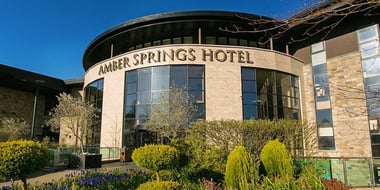Booking.com’s CEO was interviewed this week, and spoke about direct bookings in a relaxed way. While she believes direct bookings will always exist, she thinks first-time bookers for a property will inevitably be better-served by an OTA. What do you think? E-consultancy has dived into why Expedia is so successsful, and given a guide to the nitty-gritty details of their site that make them so successful.
Turning away from online travel agencies, what advantages do independents have over chain hotels? Our MD has a sharp take on 10 advantages independents hold. Lastly, we’re looking at loyalty programs: why are they so important? Can they be successful for independent hotels? What does a modern loyalty program look like?
For answers to all these questions, read on.
For Booking.com, Direct and Third-Party Bookings Can Peacefully Co-Exist
There is never going to be an overall winner in the battle for bookings between hotels and OTAs, according to the CEO of Booking.com.
In an interview at the Skift Global Forum, Gillian Tans said different types of customers would continue to book through the channel that best suited them.
“I always think there will be direct bookings. If a customer, twice per month, books the Marriott downtown Chicago then it makes sense to book that property direct. [But] most of the customers on Booking.com are booking a property for the first time and that’s a different type of customer.”
After years of handing customers to OTAs, hotels have been trying to fight back. The likes of Hilton and Marriott have been talking up the benefits of their loyalty programmes in a bid to bring in more direct bookings.
However, Tans believes it isn’t really down to individual companies.
“I always say any opinion doesn’t really matter in this discussion. Eventually customers will go to platforms that deliver what they are looking for. So in the end the customer will make that decision [of] which platform they are going to use in the future,” she said.
Do you agree?
How Expedia Turns Visitors into Customers… and What You Can Learn
$5.73bn in revenue. Nearly $400m in profit. And a market cap of over $15bn.
That’s Expedia in a nutshell.
One of the largest travel sites in the world, Expedia and its subsidiaries (which include Hotels.com, Trivago, HomeAway and Travelocity) help millions of travelers find flights and hotels every month.
Conversion rate optimization is a major concern for a business as large as Expedia’s. For obvious reasons, there’s a lot you can learn about CRO best practices and innovations by understanding how Expedia turns visitors into customers.
This post has an in-depth teardown of Expedia.com and show you how it converts traffic coming in from two different channels – organic search and direct type-ins.
10 Powerful Reasons Independents are Better Placed to Gain Market Share Over Chain Hotels
Branded chain hotels have strictly defined rules, regulations, processes, and associated costs.
Independents have greater flexibility, providing greater freedom to explore and innovate.
We believe it’s time for independent hoteliers to realise that they are a very valuable part of the hospitality industry. Their inventory is highly prized, and that there is a broader ecosystem there to help and support them in their endeavors.
Reviving the Loyalty Experience for the Mass Affluent Consumer
The “mass affluent” is an important customer sector within the travel loyalty industry – so why is it that so many high-earners seem short-changed and disengaged by their current programmes?
It’s no secret that technological and digital advances have resulted in a huge shift in consumer attitudes and behaviours. Brands are realising the need to connect on an increasingly personal level with their customers to maintain their interest.
Mass affluent consumers – defined as the top 10-15% of earners, globally – expect advanced digital experiences and brands that they can identify with – but it seems loyalty programmes aren’t yet meeting these expectations and indifference is settling in as a result.
Loyalty Programs for Independent Hotels: Rewarding, Achievable, and Important
Loyalty programs for small, independent hotels are one of the most cost-effective ways to drive direct bookings and increase the lifetime value of guests. Major hotel chains are making a big push with loyalty programs as a part of their strategy to drive direct bookings.
These major chains rely mostly on points-based programs. Independents, however, are being a little more creative. They’re focusing on immediate rewards and unique offerings, which are instantaneous and offer more value to customers.
Here’s an in-depth guide on getting them to work for you.



